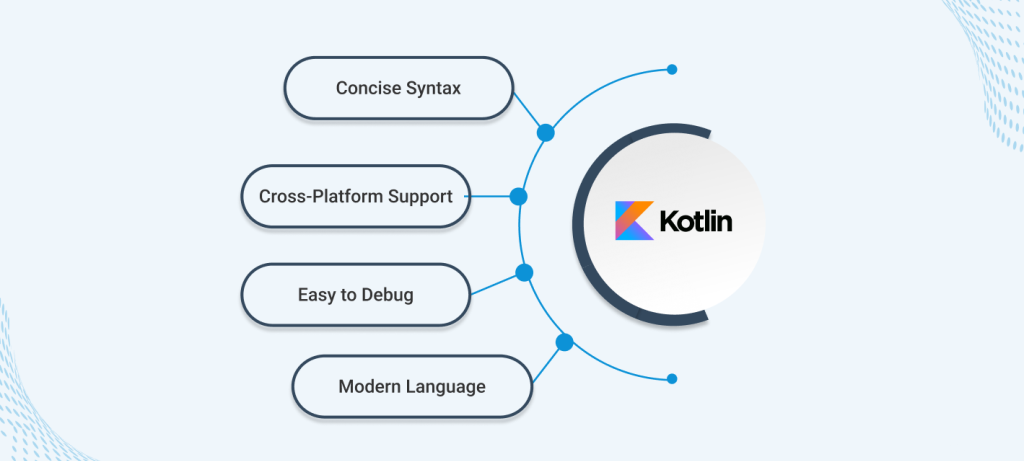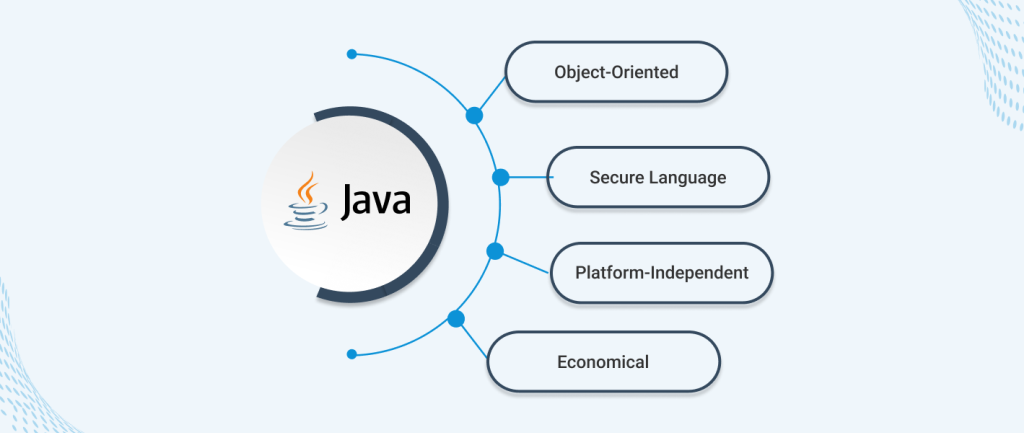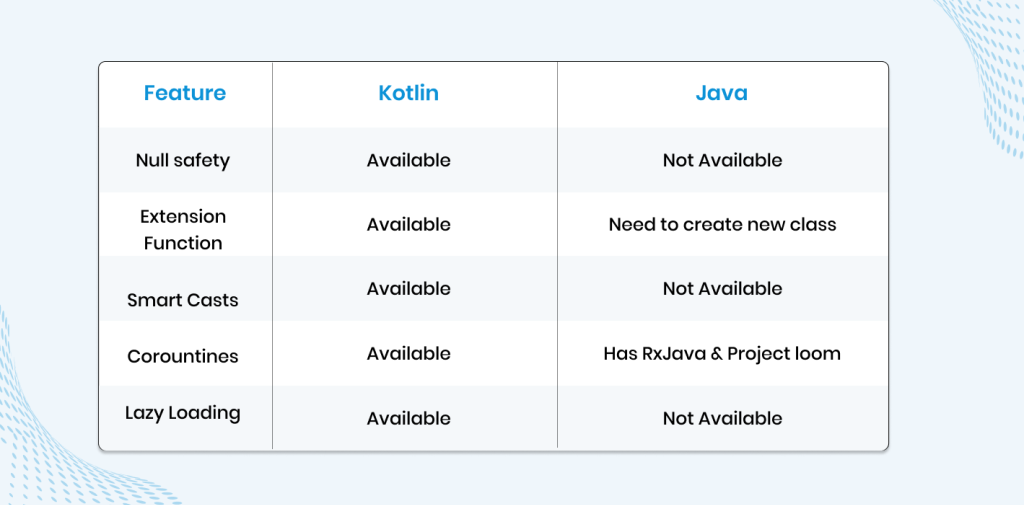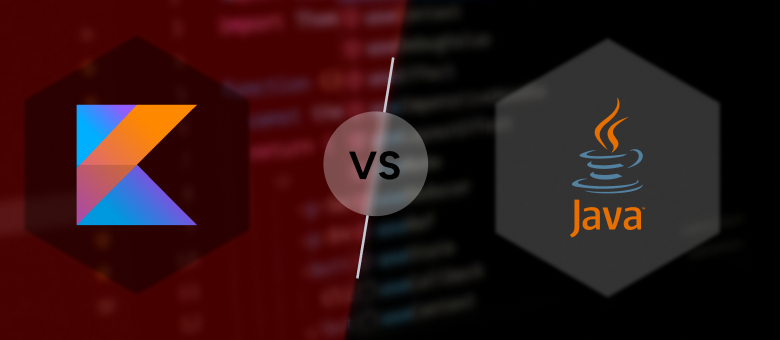According to the Stack Overflow Developer Survey 2023, Kotlin has become the most popular language among Android developers, with 59.1% of respondents saying they use it. Java is still popular, but it has fallen to second place with 53.1%. In this world of mobile app dominating, choosing the right programming language can make all the difference. Two popular options that developers often debate are Kotlin and Java. Both languages have their strengths and weaknesses, but which one would be better suited when it comes to your project? In this comprehensive comparison, we will delve into the key differences and similarities between Kotlin vs Java which is better for Android app development?
Kotlin, a relatively new programming language, offers a modern and concise syntax that makes coding more enjoyable and efficient. Its seamless interoperability with Java allows for an easy transition for developers already familiar with the language. On the other hand, Java, the veteran language, has stood the test of time with its robust and mature ecosystem, making it a safe choice for many seasoned developers.
This article aims to dive deeper into the performance, ease of use, community support, and other essential factors that play a significant role in the decision-making process. By the end, you’ll have a better understanding of both Kotlin and Java, enabling you to choose the right tool for your Android app development needs.
So, without further ado, let’s jump right into the Kotlin vs Java comparison!
Advantages of Kotlin in Android App Development

Kotlin, a relatively new programming language, offers a modern and concise syntax that makes coding more enjoyable and efficient. It was introduced by JetBrains in 2011, and in 2017, Google announced official support for Kotlin in Android app development. Since then, Kotlin has gained a lot of popularity among developers, thanks to its many advantages.
Firstly, Kotlin is more concise than Java, which means you can write less code to achieve the same functionality. This makes coding faster, easier, and less error-prone. Additionally, Kotlin has a more functional programming style, which makes it easier to write code that is more expressive and easier to read.
Secondly, Kotlin has null safety built into its type system, which means you can avoid Null Pointer Exceptions. This feature is especially important in Android app development, where null pointer exceptions can easily crash an app.
Additionally, Kotlin has a lot of other useful features, such as extension functions, lambdas, and coroutines. These features make it easier to write asynchronous code, which is essential for developing responsive user interfaces.
Advantages of Java in Android App Development

Java is a veteran language that has stood the test of time with its robust and mature ecosystem, making it a safe choice for many seasoned developers. Java was introduced in 1995, and it has been the primary language for Android app development since the platform’s inception.
Firstly, Java has a vast library of third-party libraries and tools, which makes it easier to develop complex applications. These libraries cover a wide range of functionalities, such as networking, database access, and user interface development.
Secondly, Java has a more established community than Kotlin, which means there is a lot of documentation, resources, and support available. This makes it easier to learn and develop in Java.
Thirdly, Java has better performance than Kotlin in some cases. Java code runs directly on the Java Virtual Machine (JVM), which is highly optimized for performance. Additionally, Java has been around for a long time, so it has received a lot of optimization and tuning over the years.
Performance Comparison: Kotlin vs Java

Performance is a crucial factor to consider when choosing a programming language for Android app development. Kotlin and Java have different performance characteristics, which may affect your app’s performance.
In general, Java has better performance than Kotlin in some cases. Java code runs directly on the JVM, which is highly optimized for performance. Additionally, Java has been around for a long time, so it has received a lot of optimization and tuning over the years.
On the other hand, Kotlin has some performance advantages over Java. Kotlin has more efficient null safety checks, which can reduce the number of null pointer exceptions. Additionally, Kotlin has a more functional programming style, which can make the code more efficient.
However, in most cases, the performance difference between Kotlin and Java is negligible. The choice between the two languages should be based on other factors, such as ease of use, community support, and interoperability.
Syntax Comparison: Kotlin vs Java
Syntax is another crucial factor to consider when choosing a programming language. Kotlin and Java have different syntaxes, which may affect your coding experience.
Kotlin has a more modern and concise syntax than Java. This means you can write less code to achieve the same functionality, which makes coding faster and less error-prone.
Additionally, Kotlin has a more functional programming style, which makes the code more expressive and easier to read.
Java, on the other hand, has a more verbose syntax than Kotlin. This can make the code harder to read and write, especially for developers who are used to more concise syntaxes. Additionally, Java has a more object-oriented programming style, which may not be suitable for all developers.
Compatibility
Both Kotlin and Java are fully compatible with Android Studio, the official Android development environment. They are also fully compatible with all Android libraries and APIs, including the Android Support Library and the Google Play Store.
Adoption
Kotlin is increasingly popular among Android developers, but Java is still the most commonly used language for Android development. However, Google has announced that Kotlin is now their preferred language for Android development, and they are actively promoting its adoption.
Ecosystem
Both Kotlin and Java have large and active developer communities, with a wide range of libraries and frameworks available for building Android apps. However, Kotlin has a more modern and expressive syntax, which may make it easier to work with for some developers. Kotlin also has a number of features that are not available in Java, such as higher-order functions, data classes, and type inference, which can make it more powerful and flexible than Java.
Future Outlook
Kotlin vs Java: Which is Better for Android App Development in 2024? Kotlin is a relatively new language, but it has gained widespread adoption among Android developers and has strong support from Google. This suggests that Kotlin has a bright future as a language for Android development. However, it is difficult to predict the future of any technology, and it is worth considering the long-term prospects for each language when deciding on a development path.
Interoperability: Kotlin and Java Integration
One of Kotlin’s most significant advantages is its seamless interoperability with Java. This means you can use Kotlin and Java code together in the same project without any issues. Additionally, Kotlin code can call Java code and vice versa, which makes it easy to switch between the two languages.
This interoperability is achieved through the use of the Java Virtual Machine (JVM). Kotlin code is compiled to bytecode, which is then executed on the JVM, just like Java code. This means that Kotlin and Java code can use the same libraries and tools, which makes it easier to develop Android apps.
Community Support and Resources for Kotlin and Java
Community support and resources are essential factors to consider when choosing a programming language. Kotlin and Java have different levels of community support and resources.
Kotlin has a smaller community than Java, but it is growing rapidly. There are many online resources, such as blogs, forums, and tutorials, that can help you learn and develop in Kotlin. Additionally, JetBrains, the company behind Kotlin, provides excellent support and resources for developers.
Java, on the other hand, has a vast community of developers and resources. There are many online resources, such as Stack Overflow, GitHub, and Oracle documentation, that can help you learn and develop in Java. Additionally, there are many third-party libraries and tools available, which makes it easier to develop complex applications.
Transitioning from Java to Kotlin in Android App Development
Transitioning from Java to Kotlin can be a challenging process, especially for seasoned Java developers. However, Kotlin’s seamless interoperability with Java makes the transition easier. Additionally, Kotlin’s concise syntax and null safety features can make coding more enjoyable and efficient.
To transition from Java to Kotlin, you can start by learning the basics of Kotlin, such as its syntax and features. Additionally, you can try converting some of your Java code to Kotlin using automated tools, such as IntelliJ IDEA’s Kotlin converter. This can help you get familiar with Kotlin’s syntax and features.
Choosing between Kotlin and Java for Android App Development
Kotlin vs Java: Which is Better for Android App Development?
Choosing between Kotlin and Java for Android app development can be challenging, as both languages have their strengths and weaknesses. However, the choice should be based on your specific needs and requirements.
If you are developing a new app from scratch and want to take advantage of Kotlin’s modern syntax and features, then Kotlin may be a better choice. Additionally, if you are developing an app that requires a lot of asynchronous code, then Kotlin’s coroutines can make development easier.
On the other hand, if you are working on a legacy project that uses Java, then it may be easier to stick with Java. Additionally, if you need access to a vast library of third-party libraries and tools, then Java may be a better choice.
The Future of Kotlin and Java in Android App Development
In conclusion, Kotlin and Java are both excellent choices for Android app development, depending on your specific needs and requirements. Kotlin offers a modern and concise syntax, null safety, and other useful features, while Java has a robust and mature ecosystem, better performance in some cases, and a large community of resources.
The future of Kotlin and Java in Android app development looks bright, as both languages continue to evolve and improve. Kotlin is rapidly gaining popularity among developers, and Google has officially supported it since 2017. Java, on the other hand, has been the primary language for Android app development for many years and shows no signs of slowing down.
Ultimately, the choice between Kotlin and Java should be based on your specific needs and requirements.
Kotlin vs Java: Which is Better for Android App Development?
Still not sure which language to choose for your project? Hear an opinion from the experts! Contact us for an absolutely free consultation call to address queries and brainstorm on which technology would best suit your needs.
Check out the latest updates of Kotlin 1.9.0 here!
Kotlin vs Java: Which is Better for Android App Development? | Build high-performance Android apps with Kotlin and Java developers from Aipxperts. Contact us for project estimates and enjoy a 15-day risk-free trial period.











